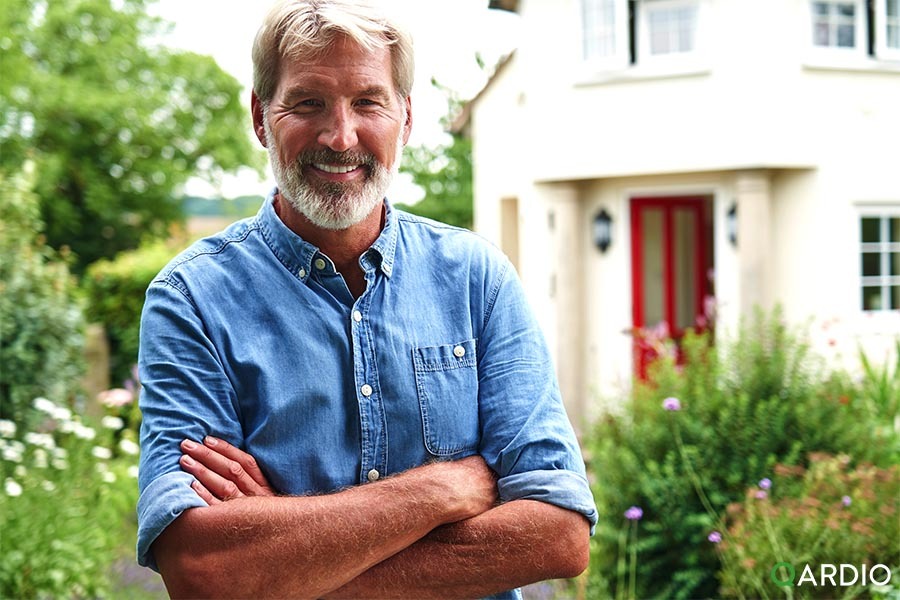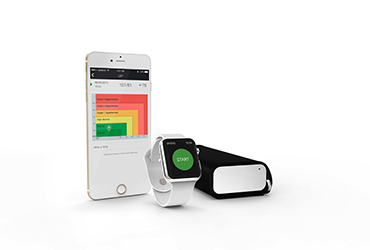“I am a 69-year-old retired property developer, happily married, with two successful grown-up daughters. I have had a lifelong interest in playing (and watching) sports.
I took up serious cycling, and subsequently triathlon when I reached 60 and since 2014 I have represented the Great Britain Age Group Triathlon team at various championships. In August 2019 I came 5th in the European Championships in Kazan (Russia) in the 65-69 Age Group. I am looking forward to 2021 when I move up to the 70+ Age Group!
I eat sensibly most of the time, eat very little red meat, and have a high proportion of vegetables in my diet as well as chicken and fish. I drink alcohol but most weeks consume very little if any. However, in rare weeks I may drink 30+ units, usually wine with food.
29th December 2019
I was on my static Wattbike and noticed that my heart rate was unusually high very early in the session. I normally take at least 10 minutes to get up to 100 bpm but the display was showing over 150 bpm. I thought it must be a faulty heart rate strap since they tend to “spike” when they stop working but on trying alternative straps I could see the fault lay with me! I am very “body aware” (some might say obsessive!) so I understand my heart rate. I, therefore, took these symptoms seriously and stopped exercising immediately. I assumed I was suffering from the onset of a cold or virus since elevated heart rate is often a warning of such an occurrence. My GP is aware of my fitness regime but has always reminded me that I have an “old” heart and I should always bear that fact in mind!
31st December 2019
I made an appointment with the GP and although I was not exhibiting any symptoms he sent me for blood tests as a precaution. (These returned negative). The one symptom I was experiencing was slight breathlessness if I went upstairs which was unusual.
13th January 2020
I arranged a follow-up appointment to see what the blood and X-ray had revealed. It was at this appointment that my GP noticed I appeared to be in atrial fibrillation and he carried out an ECG which confirmed that I was in Fast Atrial Fibrillation (spiking over 140 bpm). He sent me straight to A&E.
I remained in hospital until the 17th of January which included 3 nights in the care of the specialist Cardiology team. I was treated with anticoagulant medication and medication to lower my heart rate. The arrhythmia remained but the rate trended lower over the three days and I was released once my resting heart rate was generally below 115 bpm. I was told I would need a cardioversion procedure to get my heart beating at a normal pace.
18th February 2020
The day of surgery. I had my elective cardioversion to get my heart beating at a normal rhythm. My family was hugely supportive and reassuring. All went well and thankfully I have remained in sinus rhythm since. It is clearly difficult to determine what might have triggered my going into atrial fibrillation but as a long-term endurance athlete, that may be a factor.
The Way Forward
The doctor told me I was now in a period they call “Watchful Waiting”. He did admit that once I had been in atrial fibrillation the chances were quite high of slipping back and it seems his view is that after perhaps one more cardioversion (or not) the best route is to consider an ablation.
I asked the doctor when I might contemplate exercise and he said ‘now!” He explained that I was exercising before the atrial fibrillation so why not pick it up again now. We agreed that this might involve a more gentle introduction e.g swimming, core, and easy cycling. (It is clear to me that there is no right or wrong and one should use common sense.) He also said that it wouldn’t do any harm to have the odd glass of wine or a daily cup of caffeine but anything in excess might push me into atrial fibrillation again (although there’s no hard and fast rule). Again it seems like common sense should prevail.
I am using the QardioArm every four days now and it’s hugely reassuring to have an accurate measure of blood pressure and heart rate and to see my whole history. In my case, it’s also good to see the back of the “irregular heartbeat” message!
I am looking forward to getting back to my usual routine and getting back into sports again.”
– Paddy, Surrey
If you have a story you would like to share to help raise awareness of the importance of heart health please email sharemystory@getqardio.com.




